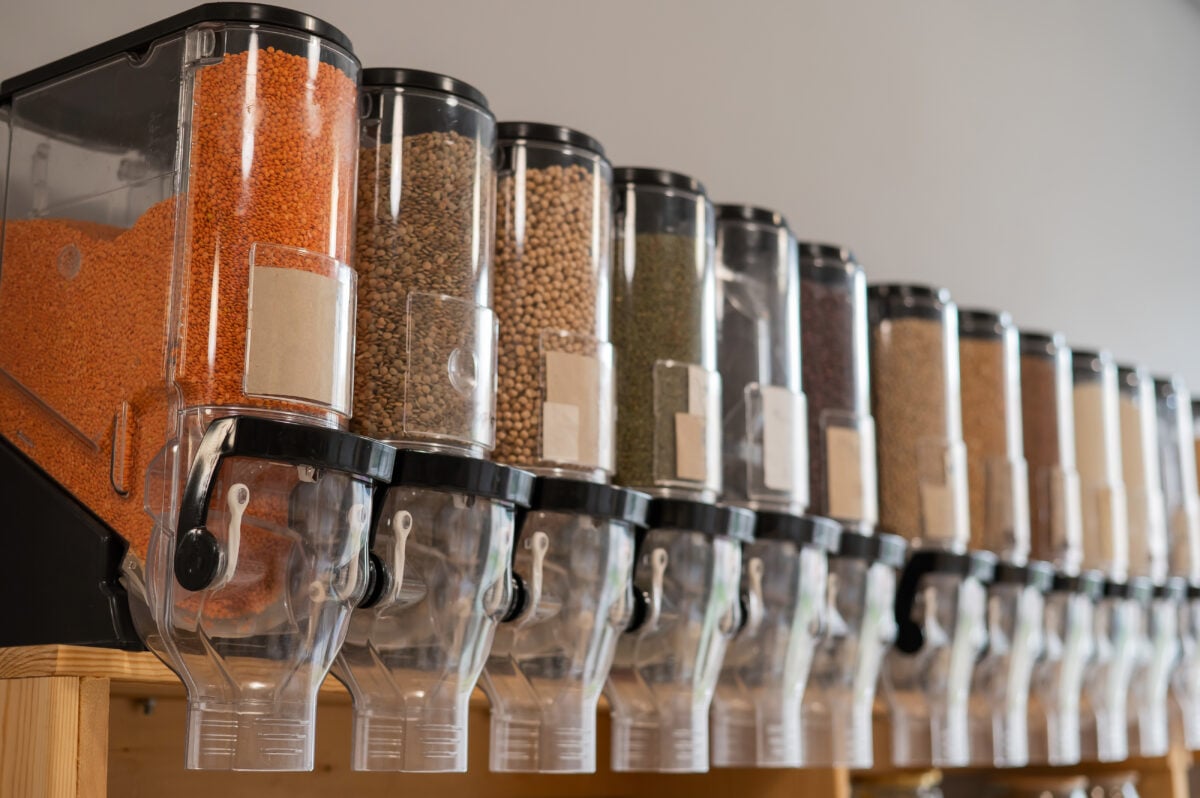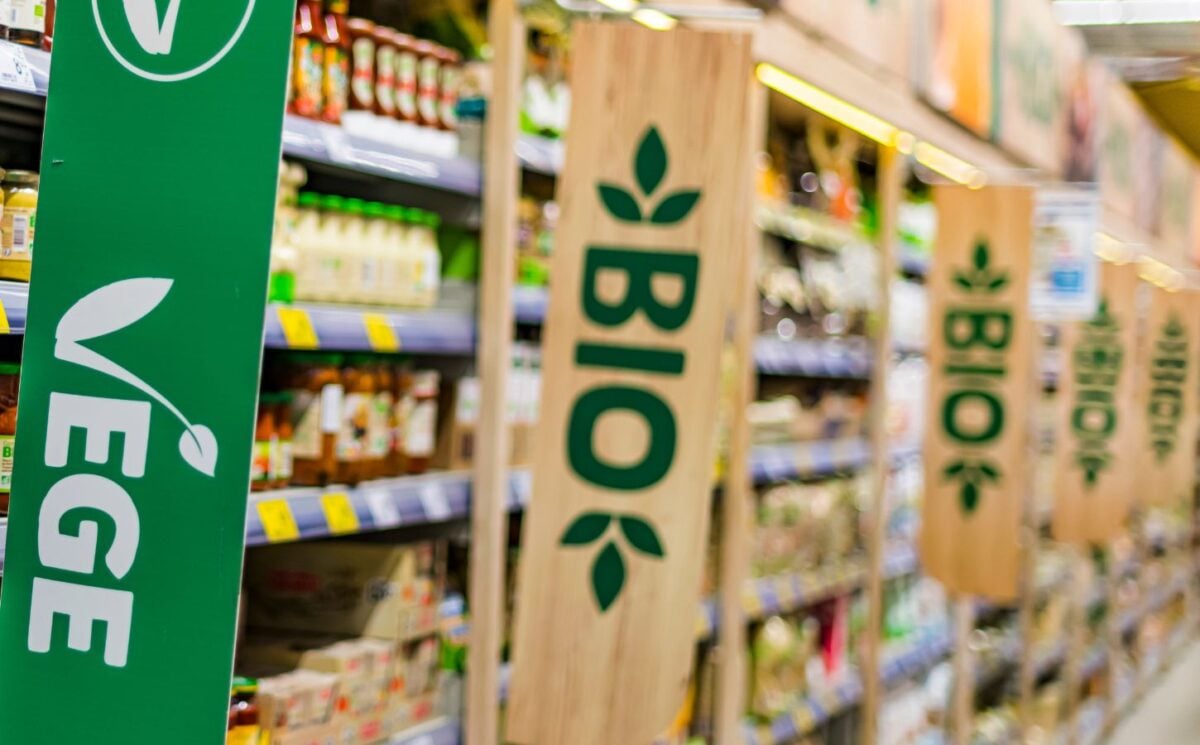A new report has found that plant-based alternatives are better for the planet and tend to be healthier than their meat counterparts.
Read more: Just Two Slices Of Ham A Day Raises Type 2 Diabetes Risk, Major Study Finds
The Food Foundation looked at the environmental impacts and nutritional profiles of foods like vegan sausages, chicken, bacon, burgers, tofu, tempeh, seitan, grains, legumes, and beans. As well as confirming that alternatives produce less greenhouse gas emissions (GHGEs) and use less water than meat, it also found that they were mostly lower in salt, sugar, and saturated fat, while being richer in fiber.
The report – named Rethinking Plant-Based Meat Alternatives – nevertheless stressed that there were considerable disparities between different types of plant-based alternative. Grains and beans are far healthier than vegan meats, for example, with the latter category being on average higher in salt than other foods studied.
Study findings
Researchers looked at 68 different plant-based products and 36 animal meat products. They divided the plant-based products into three categories, which were as follows:
- Processed (new generation): This covered plant-based meats from brands including Beyond Meat, THIS, Quorn, Linda McCartney, and supermarket own brand burger products. These foods tend to be made with ingredients like soy, peas, nuts, wheat, and mycoprotein
- Processed (traditional): This category included tofu, tempeh, and seitan. These are all popular meat alternatives that have a long culinary history in other parts of the world, notably southeast Asia
- Less processed alternatives: These alternatives were beans, legumes, pulses, and grains
The fourth category looked at meat products made from poultry, pork, lamb, and beef.
Healthiness of plant-based alternatives compared to meat

The study used a traffic light system to signify low, medium, and high levels of sugar, salt and saturated fat. Green was low, amber was medium, and red was high.
While chicken scored green for saturated fat, all red meats – beef, lamb, and pork – scored red. Pork also scored red for salt, while beef and chicken scored amber. Lamb was the only meat to receive a green rating for salt. All meats were marked green for sugar.
The study found a “great deal of diversity in nutrition profile” among the processed (new generation) category of plant-based meat. Vivera (made from soy), Tesco own-brand (soy), Linda McCartney (soy), and Quorn (mycoprotein) scored the best, all receiving green for saturated fat and sugar and amber for salt. THIS scored amber for both saturated fat and salt. Just two plant-based meat brands were given red marks, with both Future Farm (soy and pea) and Richmond (soy, wheat, pea, and chickpea) receiving a red salt rating. All plant-based meats got a green rating for sugar.
The processed (traditional) category saw healthier ratings. While tempeh and seitan were given amber ratings for saturated fat and salt respectively, all other markers were green (with tofu scoring all green ratings).
The less processed category (beans and grains) was entirely green for health markers. This category performed “strongly on a number of different nutrition indicators.” The authors noted that these products contain “notably” lower amounts of saturated fat, calories, and salt, plus the highest amount of fiber of all foods analyzed.
Read more: Austria’s New Dietary Guidelines Recommend Less Meat, More Plant Proteins
Plant-based alternatives often healthier
The study found that all three plant-based meat alternative categories contain on average lower levels of saturated fat, fewer calories, and offer more fiber on average than all meat products analyzed. Study authors noted, however, that plant-based alternatives were also lower in protein and “marginally” higher in sugar.
The authors stressed that the lower levels of protein was not a significant issue. “It is important to note that although plant-based alternatives have a lower protein content compared to animal based foods, high income countries such as the UK do not have issues with protein deficiency at a population level,” they wrote.
Average UK adults eat 35 percent more protein than is recommended. This means that switching to a plant-based diet is unlikely to adversely affect protein levels. In contrast, just nine percent of adults are eating enough fiber. This means that the increased fiber content in all three plant-based categories could be key in addressing this issue.
The most notable health problem with the plant-based alternatives was the high salt content in the processed (new generation) category, which saw the highest levels of all four categories. The report authors also pointed out that only a third of these products were fortified with iron and B12. They suggested that reformulation of ingredients should address both of these issues.
‘Greater nuance is needed’
The study authors are calling for “greater nuance” when it comes to discussing the healthiness of plant-based alternatives, as there is considerable disparity between categories in terms of health.
“Grouping all plant-based alternatives into a single category is an unhelpful strategy for encouraging a shift away from meat and towards more plant-rich diets as it hides a wide variety of options with differing nutrition and health profiles within the plant-based alternative category,” the authors wrote.
While the study acknowledged that plant-based meat alternatives can be a “useful stepping stone” for encouraging people to shift their diets, they stressed that the less processed alternatives – notably beans and grains – offer “the greatest number of co-benefits.”
A healthier and more planet-friendly choice
The environmental impact of foods were measured in terms of greenhouse gas emissions and water use. Across the board, plant-based alternatives were better for the planet than meat.
The most planet-friendly products were foods like grains, beans, tofu, tempeh, and seitan. Meats received red ratings for both emissions and water footprints, with the exception of chicken, which was rated amber for water.
“Plant-based alternatives to meat offer clear environmental benefits in terms of having lower GHGEs and smaller water footprints,” the study authors wrote. “Although research on health outcomes associated with plant-based meat alternatives remains limited, this analysis does not find evidence that the nutritional profile of plant-based meat alternatives is on average notably inferior to meat products.”
The study authors went on to state that the less processed alternatives to meat, including grains and beans, “perform strongly on a number of different health indicators compared to both meat and other plant-based meat alternatives.” They are also the most affordable alternative to meat.
“There is, therefore, a real opportunity in the UK to champion and better invest in, support and promote beans and wholegrains as an affordable, healthy and sustainable alternative to meat,” the study concluded. “These are a win-win-win for environmental, health and equity outcomes.”
Read more: What Plant-Based Foods Are ‘Complete’ Protein Sources?






